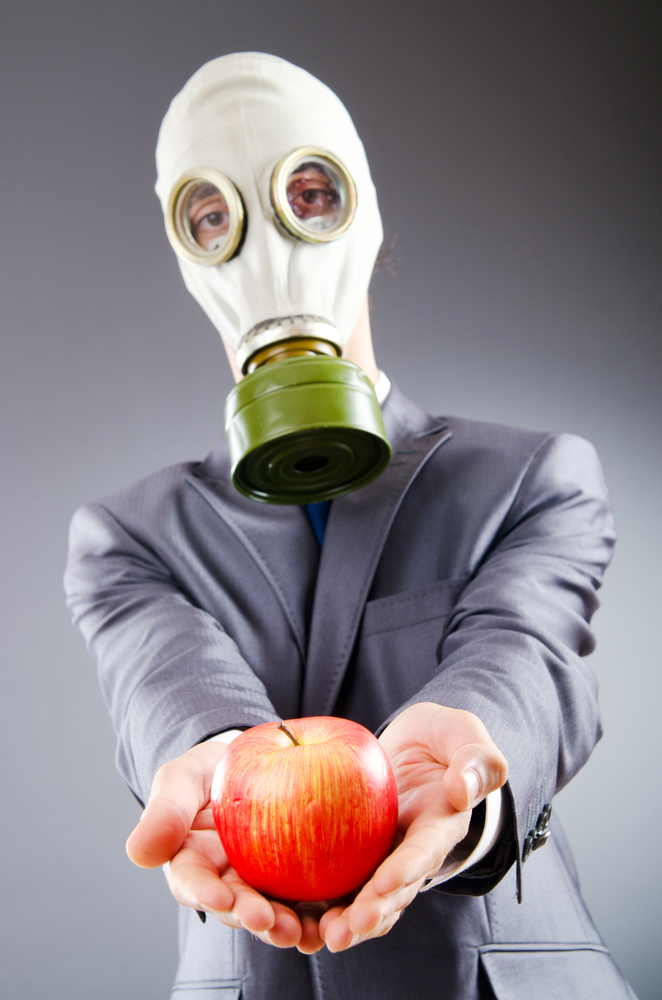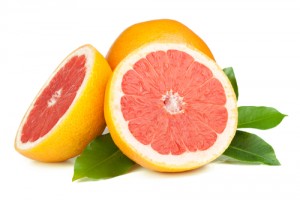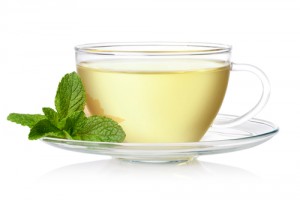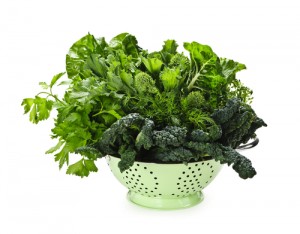In 2009, 7 out of every 10 Americans received at least 1 prescription drug –half were given two or MORE. Along with grey hairs, weaning eyesight, and a stubborn waistline, prescription drugs seem to be just one of those facts of life for aging Americans…And, for many, it’s hard to argue when the doc insists the first course of action is some proven medication. Science wins.
What’s usually the next step?
Getting healthy, right?
So, you start walking more, eating healthy, and cutting back on foods that abuse your body. At that point, it’s almost certain that the power of some “miracle nutrient” will creep across your radar…whether it be the apple a day your doctor always told you about or new superfoods from the Brazilian rainforest.
But are healthy, natural foods always a good idea?
No…and especially not when you’re already taking drugs prescribed by your physician. Today’s Dietician writes in their article, “When Foods and Drugs Collide — Studies Expose Interactions Between Certain Foods and Medications”, that “Older patients are particularly at risk for negative food and drug interactions simply because this population takes more than 30% of all prescription drugs.” (1)
The Bottom Line is That Natural Does Not Always Mean Safe
Just because something comes from nature doesn’t immediately peg it as a safe substance – that’s the first thing to realize. In fact, many medications themselves are just hyper-concentrated forms of some natural extract or compound.
But what you may not know, or have just not taken the time to think about, is that everything that enters your digestive system can potentially interact with anything else you put in there. If you’re already consuming powerful drugs and then stack powerful nutrient-rich, health-altering substances on top of them, there’s a possibility of side effects.
Food and drug interactions can manifest in two major ways:
One is the foods might interfere with your body from absorbing the medication, so that your active dose is lowered and you don’t quite get the benefits you were hoping for. In other cases, the food may lead to increased absorption, giving the drug a boost and creating stronger, sometimes dangerous, effects.
This goes both ways. The drugs can also cause compound or inhibit the effects of the herbs you take, for instance.
Here are a few you should look out for (just as a small sampling):
Perhaps one of the more well-known foods to watch out for when on prescription meds is grapefruits and grapefruit juice. Alone, it has great health benefits, but just as it’s said to increase metabolism, it also may increase the action of prescription medicines.
In 2012, a study published in the Canadian Medical Association Journal noted 85 drugs that interact with the stuff, in some cases with deadly consequences (2). The possible active ingredient causing problems, furanocoumarin, also shows up in Seville oranges and tangelos; they just haven’t gotten as much research attention.
In most cases, the chemical is not doing anything to the pills themselves. Rather, it blocks an enzyme in your intestinal track that reduces absorption, giving the medication a boost.
The Harvard Medical School Family Guide provides a handy little chart noting medications that are boosted by this type of juice as well as those that have no interaction (3).
Also, in some cases, the boost can be a godsend. For example, research from the University of Chicago Medicine suggests that grapefruit juice may aid in the fight against cancer by improving sirolimus uptake enough to possibly cut the drug down by a third (4).
For those who want to avoid coffee, green tea has long been a go-to choice, and for good reason. It’s great for you.
Benefits associated with drinking green tea include reducing the risk of many cancers, lowering the risk of heart disease, blocking the oxidation of LDL cholesterol, increasing good cholesterol, and improving artery function. A Chinese study even revealed a 46%-65% reduction in the risk of high blood pressure for those who drink it on a regular basis (5).
And it seems there’s always some new study just around the corner (6).
But that doesn’t mean it’s always the best liquid to fill your cup. Green tea gives coffee a run for its money precisely because it’s a strong stimulant – it has caffeine in it as well. This means it may be a bad idea to sip it when taking ephedrine, amphetamines (like Adderall), and certain asthma medications.
Here is a list of other possible medications green tea may interact with (link to http://www.rxlist.com/green_tea-page3/supplements.htm).
Leafy greens, probably one of the most oft-touted “health food prescriptions,” and a favorite of your grandmother, is not without its place on the list.
Foods like spinach, kale, brussel sprouts, broccoli, and asparagus have high levels of Vitamin K, which is fantastic in a lot of ways. Vitamin K helps your blood clot properly and is good for bones, to start. However, clotting blood is not always something you want – the nutrient can wreak havoc if you’re using blood thinners, like Warfarin (Coumadin).
The Vitamin K counteracts the anticlotting effect depended on to decrease the risk of stroke, and in some situations this could prove to be life threatening.
Does This Mean These Natural Food Products are Bogus?
There are countless other ways in which natural (and unnatural) food products can react with medications. So are the natural food trends a sham?
Not at all. We don’t want to scare you away from healthy choices. And in fact, the reaction these foods have with prescription drugs is, in some ways, indicative of their powers.
Also, keep in mind that there’s often a big difference between the amounts used in studies and the trace amounts taken with natural health products – not to mention the great deal of variance that occurs from person to person as far as effects go.
But There are Some Important Lessons To All This:
- The first is that you should never assume that something is better for you just because it’s natural. Turning to Nature is, of course, a great first step, but it’s important to have some cognitive awareness of all things you put into your body.
- Educate yourself about the types of things you take. If a doctor prescribes prescription pills, ask the hard questions about what can be eaten with it and what cannot. Don’t just take their word for it though – learn to do your own research. New research emerges constantly, and that can seem like a hassle, but powerful drugs are a responsibility.
- If you get caught up in a new craze on an herb or “superfood” and are planning to make it a heavy component of your diet, don’t jump in blindfolded. If something’s powerful enough to cause dramatic changes in your health, it’s probably powerful enough to have adverse effects if taken wrong as well. At the very least, do some research into what it may or may not agree with, and run it by your physician if you are on any prescription drugs.
- Finally, the big elephant in the room on this conversation, one that’s hardly ever mentioned, is the prescription drugs themselves. After all, aren’t the pharmaceuticals themselves the one common theme to each of these concerning side effects? In cases where the food is compounding the effects of the drug, it begs the question, why not take the food instead of the drugs if they’re giving the same effects?
Well, have you ever heard that an apple a day could be worse than smoking 30 cigarettes?
Seems a bit silly…or does it?
I didn’t believe it myself first…until I came across this latest research.
Many leading medical journals are publishing it. Even the famed heart surgeon, Dr. Oz, talked about it on national TV.
And what’s surprising, is that aside from the foods and interactions we discussed above, a few other common ‘health’ foods are actually causing heart attacks, diabetes and high blood pressure.
See the whole story on the next page…
Resources:
- http://www.todaysdietitian.com/newarchives/121610p26.shtml
- http://www.cbc.ca/news/health/grapefruit-juice-interaction-with-drugs-can-be-deadly-1.1253489
- http://www.health.harvard.edu/fhg/updates/update0206d.shtml
- http://www.health.harvard.edu/fhg/updates/update0206d.shtml
- http://www.health.harvard.edu/press_releases/benefit_of_drinking_green_tea
- http://umm.edu/health/medical/altmed/herb/green-tea
- http://articles.latimes.com/2011/sep/17/local/la-me-drugs-epidemic-20110918
 Validating...
Validating... 








